Executive Courses
Upskilling Your Workforce through TDSI’s Executive Courses
TDSI’s Executive Courses under its Continuing Education arm look at domain-specific disciplines in systems thinking and systems engineering, as well as any in-trend/ emerging technologies, to upskill the Singapore defence workforce in line with the nation’s advocacy for lifelong learning. Embracing the digital transformation landscape today, participants will benefit from these courses, learning from subject matter experts from the defence technology community and/or academic institutions, on valuable topical knowledge and skillsets to manage real-world applications. This allows course participants to strengthen their capabilities and value-add to their employing organisations.
TDSI’s Executive Course “Military Navigation Systems Workshop” for Singapore’s Defence Technology Sector
Given the critical importance of navigation in modern military systems and operations that leverages on smart technologies, access to reliable navigation data is imperative while denying them to adversaries during military operations. The executive course on “Military Navigation Systems Workshop” aims to highlight the vulnerabilities in military navigation systems under different deployment scenarios, and share potential corresponding counter-measures. Participants from the defence technology community were appreciative of the knowledge gained from the workshop and acknowledged that the learning was highly relevant and impactful to their current field jobs/ projects. This workshop is well-recognised by the Professional Engineers Board and qualified for 6 Professional Development Units.
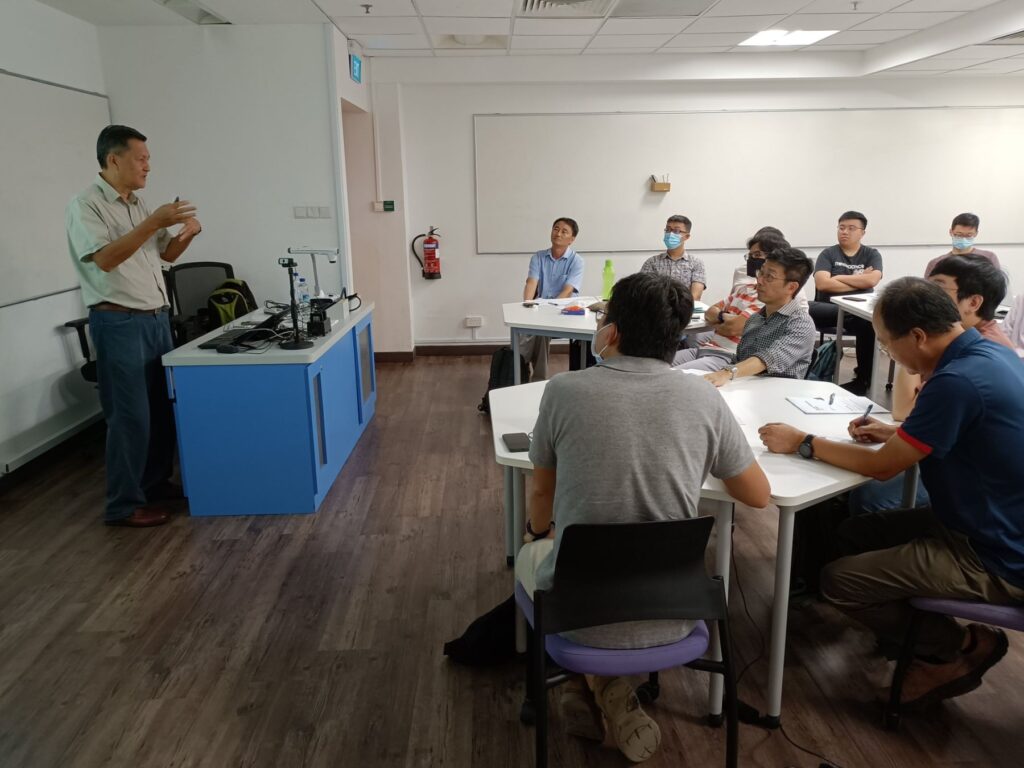
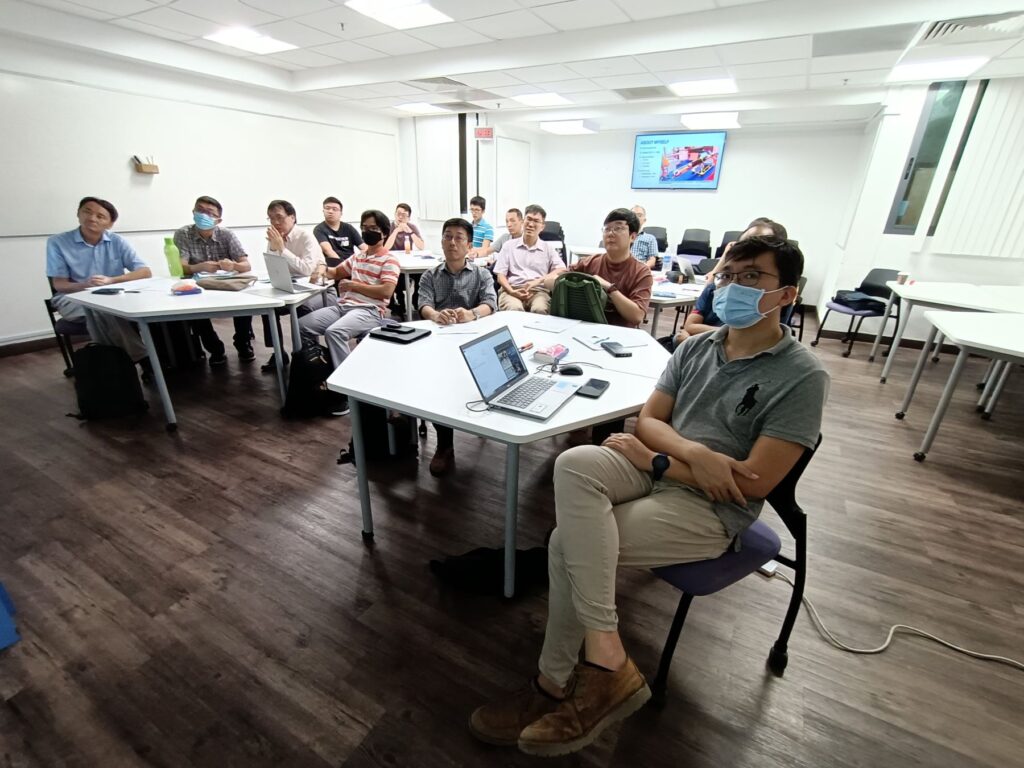
TDSI’s Executive Course “Systems Engineering and Analysis of Emerging Advanced Technologies for Defence Applications”
It is important for the Singapore defence forces to be at the frontier and be knowledgeable about emerging technologies for defence applications. The executive course on “Systems Engineering and Analysis of Emerging Advanced Technologies for Defence Applications” aims to present concepts and methods for engineering and analysing emerging advanced technologies, that include artificial intelligence and directed energy weapons, for defence applications. Course participants from the defence technology community have learnt and gained insights from the course that introduced concepts in complexity theory, strategic thinking, technology assessment, systems engineering and systems analysis. Course participants were appreciative that the learning gained have value-added to their current work with their primary affiliated organisations in the defence eco-system.
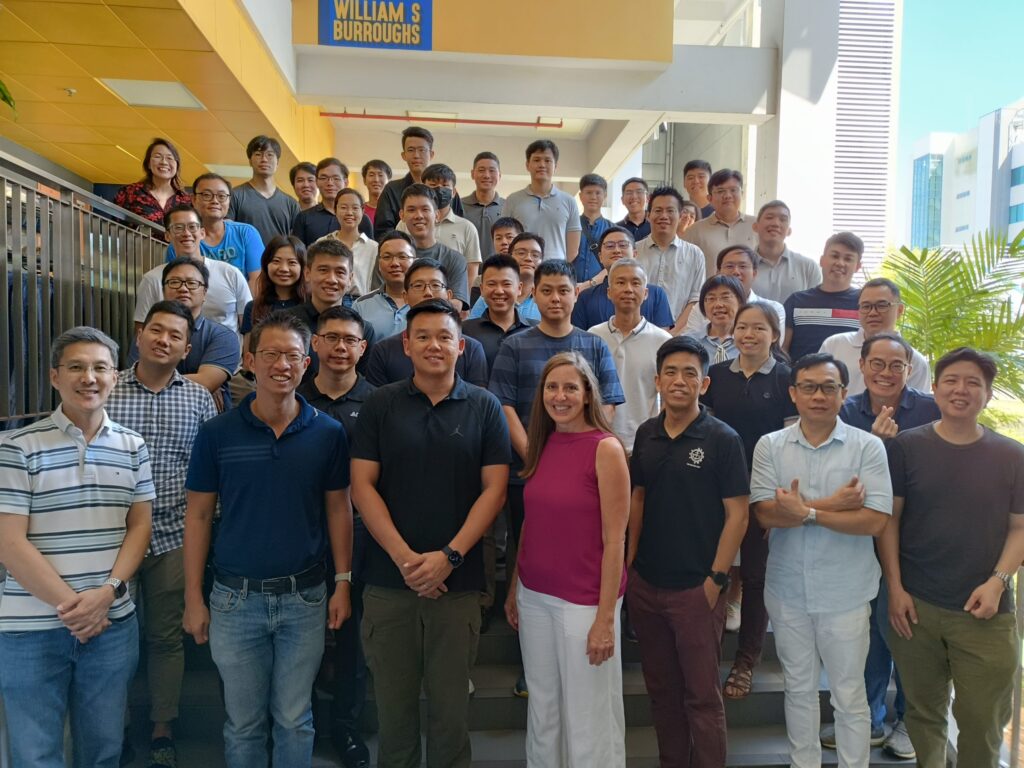
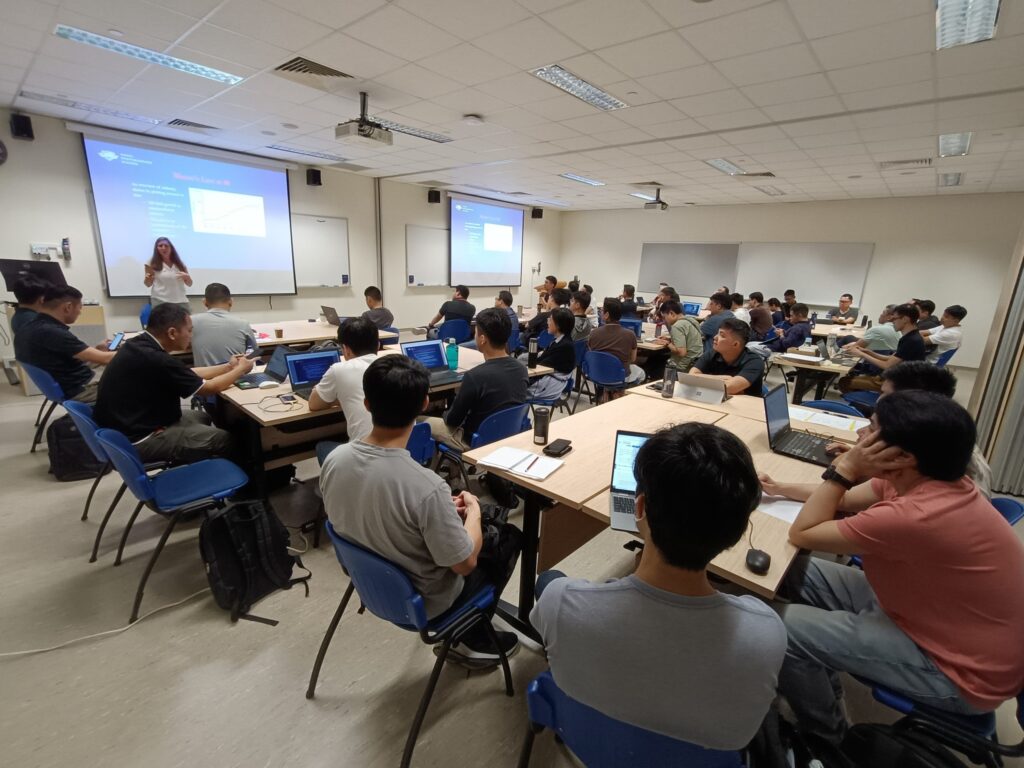
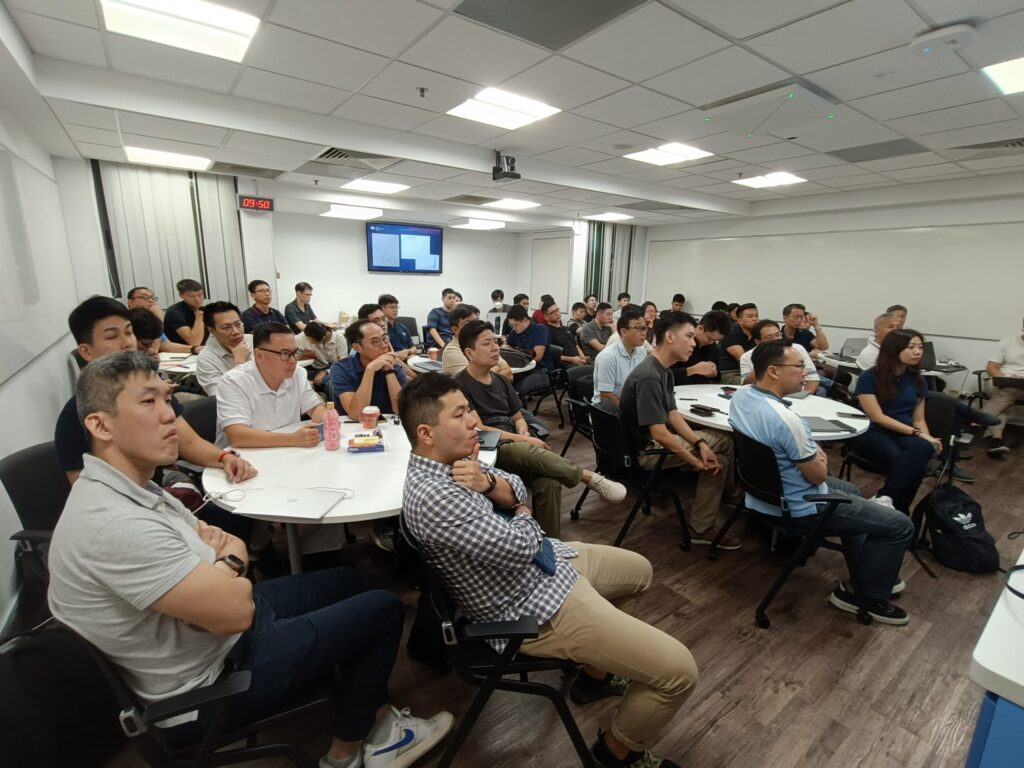
TDSI’s Executive Course “Generative Artificial Intelligence”
Artificial Intelligence (AI) technologies have been widely adopted in operations and work processes/ systems at the national level and in various industries. Generative AI is the latest cutting-edge technology that has been launched to extreme popularity, with progressive adoption by enterprises and industries because of its capabilities that can boost productivity and value-add decision-making, alongside many other deployment opportunities. Recognising the increasing importance of Generative AI for the defence sector, TDSI organised the executive course on this in-trend technology for the Singapore defence technology community to equip them with the fundamental knowledge of key concepts and applications of Generative AI, included algorithms such as generative adversarial networks (GANs) and variational autoencoders (VAEs). Course participants learnt how Generative AI could enhance military operations, from synthetic training data generation to scenario planning and decision support systems. This course is well-recognised by the Professional Engineers Board and qualified for 12 Professional Development Units.
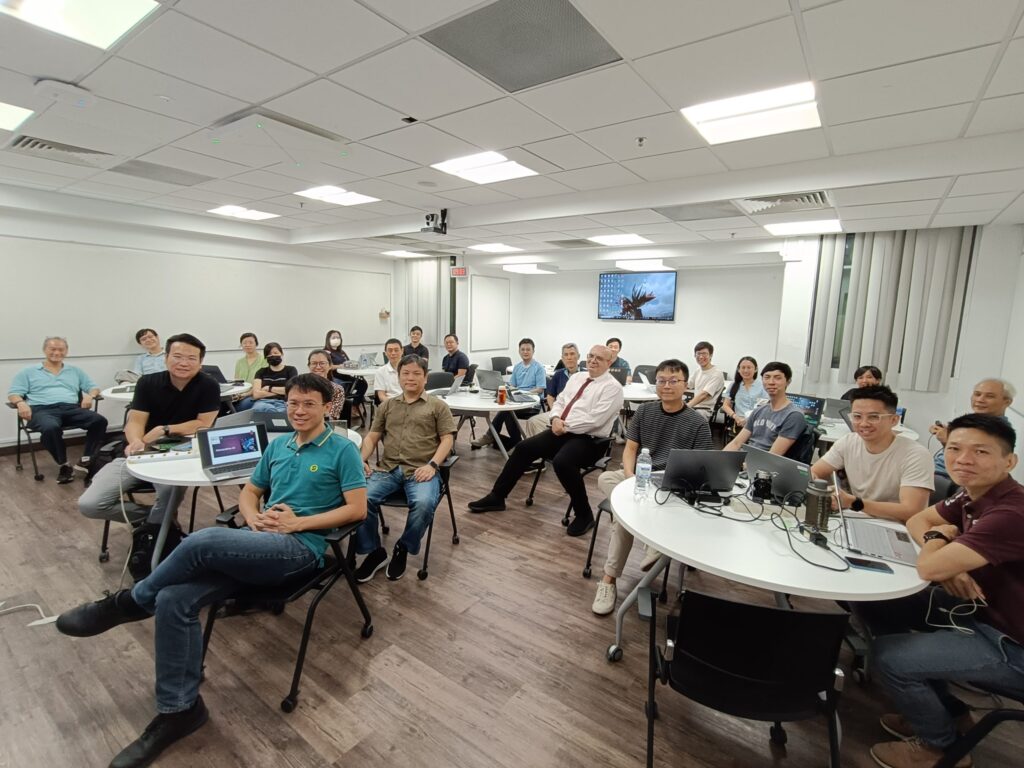
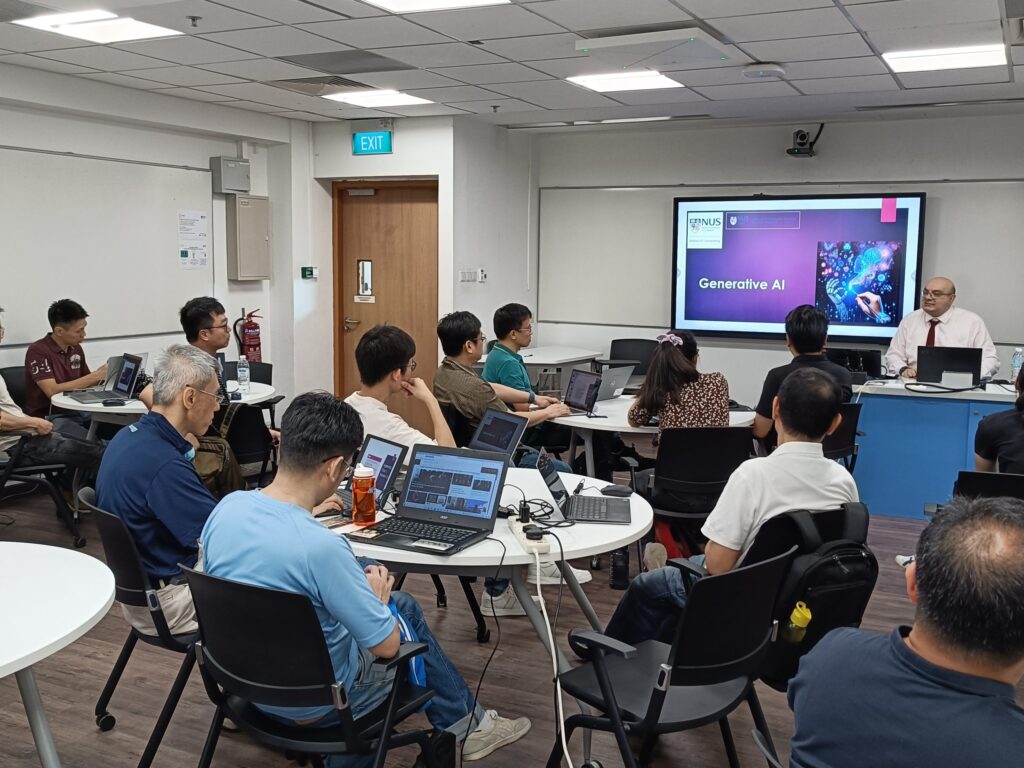
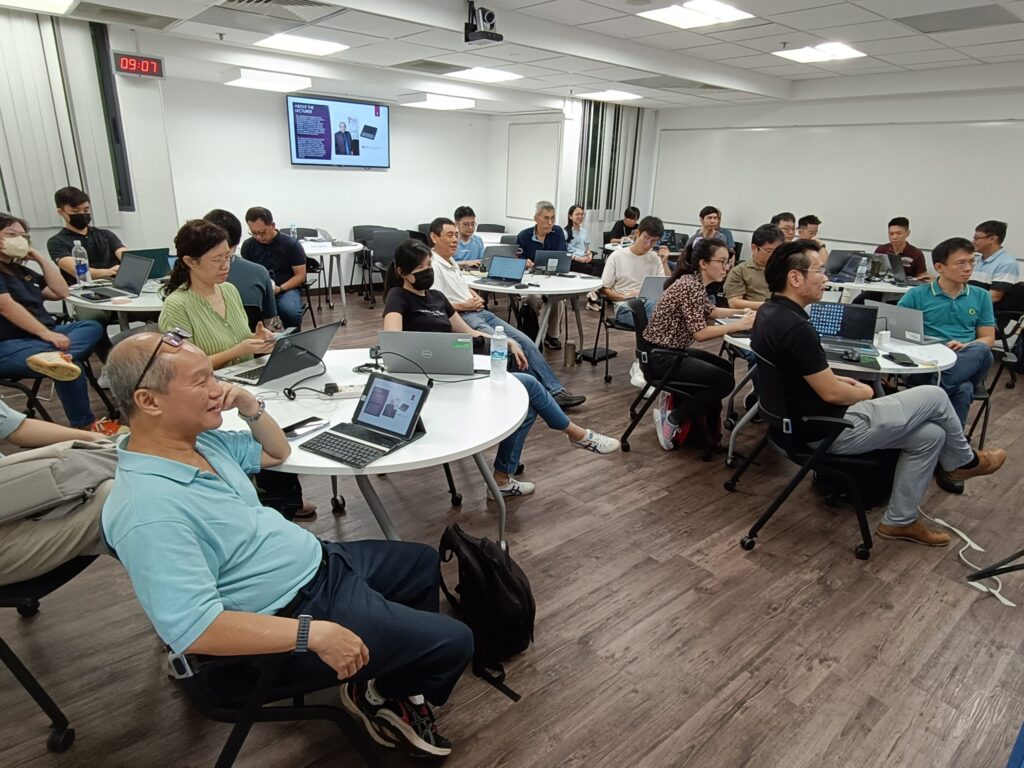
TDSI’s Executive Course “Swarm Intelligence and AI-Driven Unmanned Aerial Systems”
Swarm intelligence has become increasingly important for the defence community to learn as the technology is reshaping how autonomous systems operate in complex and contested environments. It is strategically important for the defence professionals to understand swarm intelligence technology to gain operational advantage, and with technology readiness, to ensure resilience and shape the future of warfare. Swarm intelligence is also a dual-use technology that could be applied from search-and-rescue and disaster response to maritime surveillance, making it essential for multi-domain operations. This 3-day intermediate-level course of TDSI focused on the fundamental and advanced concepts of multi-agent autonomous systems in the context of aerial swarms, specifically on the latest state-of-the art and practical applications. The course also provided a comprehensive overview of robotics and multi-agent systems, swarm formation, communications, task scheduling and allocations, swarm operations, as well as applications for heterogeneous systems and an introduction to game theory.
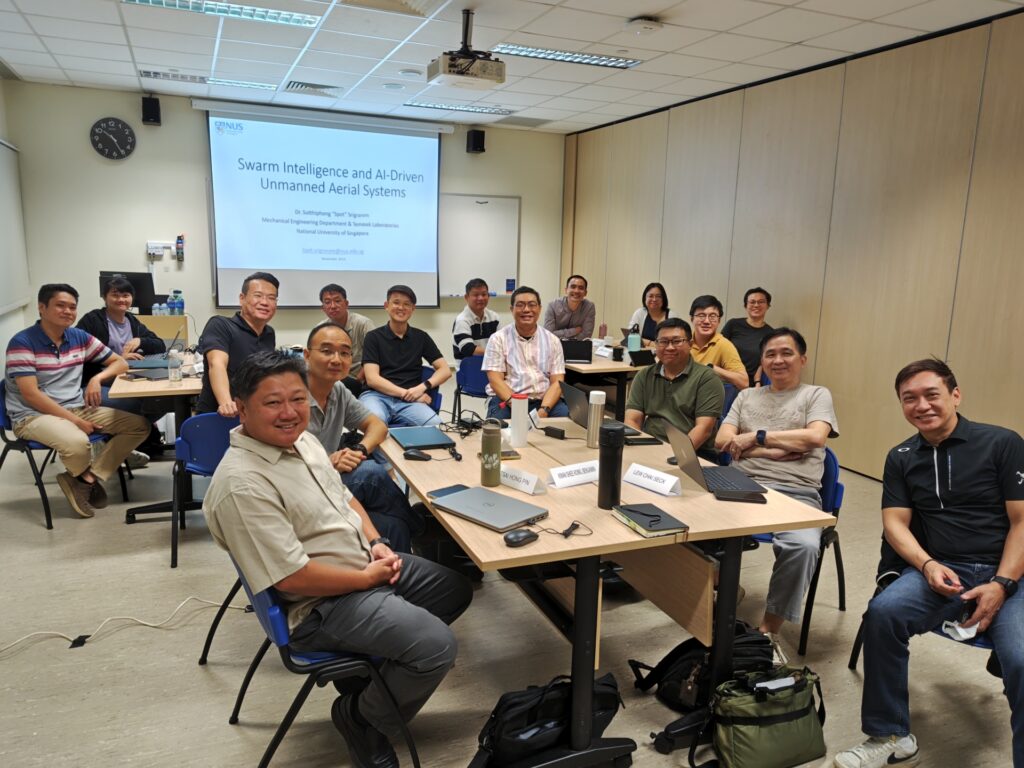
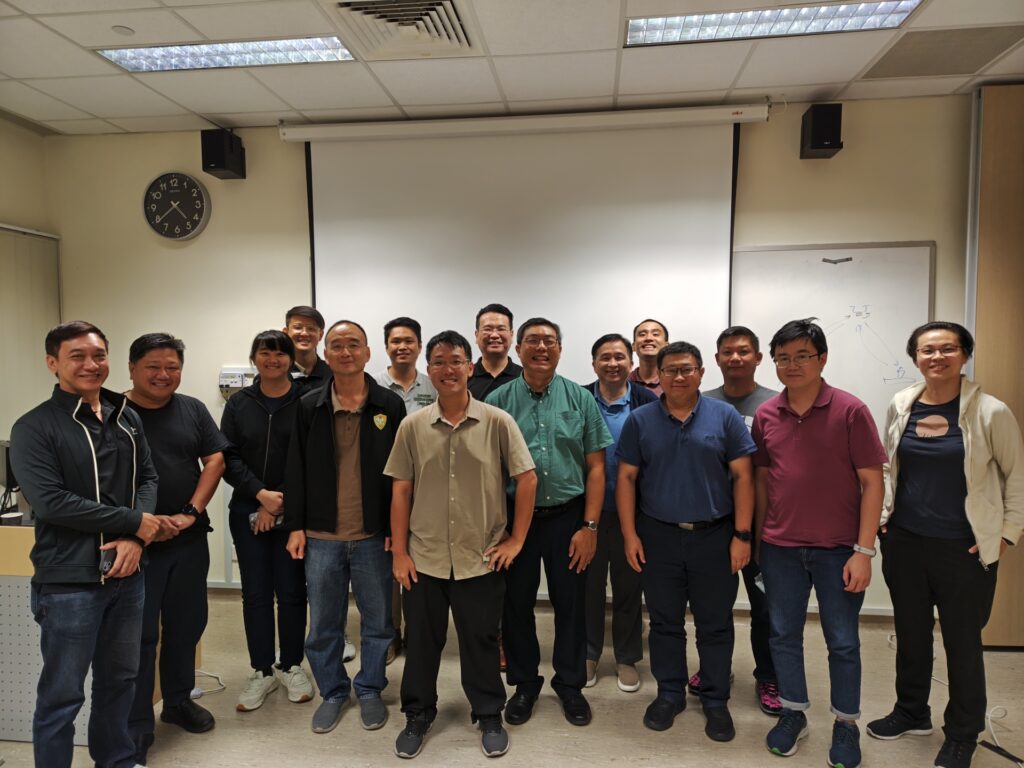

From Fritz-X to Drones:
80 Years of Precision Evolution
Overview
The Fritz X, a German anti-ship glide bomb first deployed in July 1943, was one of the first precision weapons deployed in combat. The Germans also developed and pioneered the use of the V1 flying bomb and V2 rocket. In the Asia-Pacific theatre, the Japanese resorted to the use of kamikaze pilots. These early forays into precision operations spurred the development of enabling technologies that led to leaps in targeting accuracy from kilometre to centimetre levels, as exemplified by what the world saw during Desert Storm in the Gulf in 1991. Even during the days of the Fritz X bomb, the cat-and-mouse dynamics between precision and electronic warfare (EW) already existed. More recently, the rise of drones has sparked the development of Counter-Unmanned Aerial Systems (CUAS) for protection against drones. In the Russo-Ukraine War, we are seeing how these factors are converging, fuelled by the rapid advances in AI-enabled algorithms and autonomy to provide some indications of how precision and EW could evolve in future.
Precision has become more accessible and affordable. Operation Spider’s Web, the audacious Ukranian drone raid deep into Russian territories on 1st June 2025 illustrated how these trends, paired with human ingenuity and meticulous planning could achieve unprecedented asymmetric effects.
This joint seminar will focus on the evolution of precision in modern warfare over the past 80 years and the use of radio-frequency jamming for modern-day multi-layered CUAS.
Learning Outcome
Course Outline
Who Should Attend
Lorem ipsum dolor sit amet, consectetur adipiscing elit. Ut elit tellus, luctus nec ullamcorper mattis, pulvinar dapibus leo.
Speakers
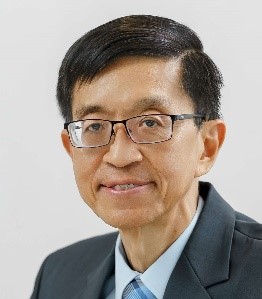
Professor Quek Tong Boon
Founder and Former Chief Executive, National Robotics Programme, Singapore
Former Chief Defence Scientist, Ministry of Defence
Professor Quek Tong Boon has been involved with the development of key technology capabilities for more than 4 decades for the defence, economic and other public sectors in Singapore. In the defence sector, his last appointment before stepping down in 2016 was Chief Defence Scientist. Prior to that he had served in positions such as MINDEF’s Deputy Secretary (Technology and Transformation) and Chief Research and Technology Officer, Chief Executive Officer of the DSO National Laboratories and Director of the Defence Materiel Organisation (forerunner of today’s Defence Science and Technology Agency.
After leaving defence in 2016, he established the National Robotics Programme and was its Chief Executive until end March 2025. His current public sector involvements include being Chairman of the PUB Water Technology Advisory Panel and a member of the Committee of Government Scientific Advisors. He is a member of the WEF Global Future Council on Autonomous Systems.
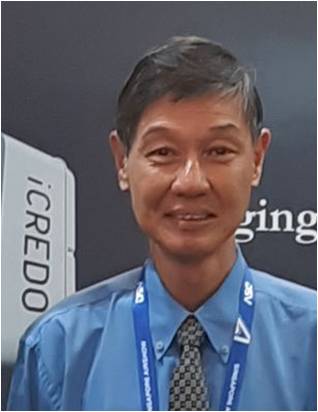
Dr Chew Siou Teck
Chief Executive Officer and Chief Technology Officer
iCredo Technologies Pte Ltd
Dr Chew is the founder and CEO/CTO of iCREDO Technologies Pte Ltd. His focus is on Counter Unmanned Aerial Systems (CUAS), in particular low RF power jammers. He developed proprietary waveforms that are universal for RF jamming. This technology transforms new Concept of Operations (CONOPS) and a paradigm shift in the way Electronic Warfare is conducted in the drone domain space. In 2002, he was awarded the “Defence Technology Prize” for Microwave Engineering by Ministry of Defence, Singapore. He is also a Senior Member of the Institute of Electrical and Electronic Engineers.
Details
- 06 Aug 2025, 2:00 pm - 4:30 pm
- -
- NUS College of Design & Engineering, Blk EA, Level 6, Seminar Room 06-03
Status
This event is now closed.
